Events
| Name | organizer | Where |
|---|---|---|
| MBCC “Doing Business with Mongolia seminar and Christmas Receptiom” Dec 10. 2025 London UK | MBCCI | London UK Goodman LLC |
NEWS
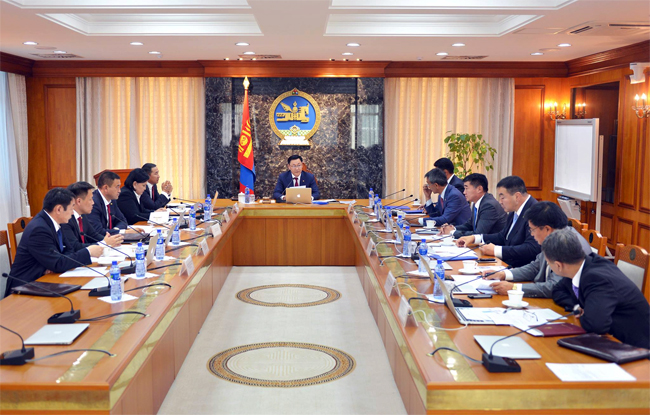
Minister of Labor and Social Protection appointed www.montsame.mn
Prime Minister L.Oyun-Erdene today signed an ordinance on appointing T. Ayursaikhan as the Cabinet member and Minister of Labor and Social Protection.
As the Constitution of Mongolia reads, a member of the cabinet shall be appointed or dismissed after presenting to the State Great Khural and the President of Mongolia, Prime Minister L. Oyun-Erdene presented the new minister to President U. Khurelsukh today, and afterwards, the minister took the oath to the State Great Khural during its plenary session today.
Former Minister of Labor and Social Protection D. Sarangerel was dismissed in the late-September as she was deemed to have violated the Constitution and made an ethical mistake.
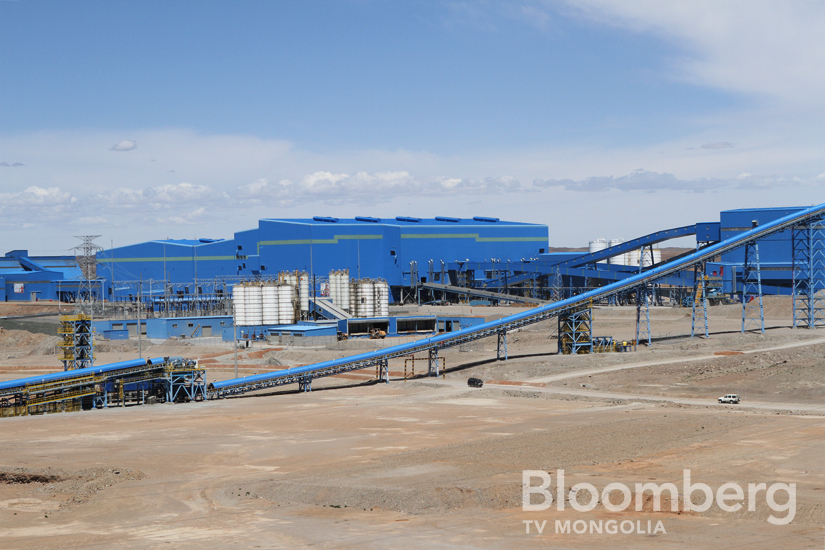
ISS sides with top Turquoise Hill investors in dismissing Rio takeover www.bloomberg.com
Institutional Shareholder Services Inc. is urging investors of Turquoise Hill Resources to reject Rio Tinto Group’s proposed takeover — siding with criticisms from top shareholders that the deal undervalues the company behind one of the world’s biggest copper mines.
ISS recommended Turquoise Hill shareholders vote against Rio’s cash offer to acquire 49% of the stock it doesn’t own for C$43 a share, the firm said Friday in a report. The deal values the stake in the Montreal-based miner at about C$4.24 billion ($3.1 billion).
“While the offer provides an escape from the immediate downside, certainty of value today comes at a cost that is too high to be tolerated,” ISS said, adding that the severity of the downside risk is outweighed by the magnitude of the discount to net asset value implied by the offer. “As such, support for this offer is not warranted.”
ISS’s position is contrary to Wednesday’s recommendation by another advisory firm, Glass Lewis & Co., which urged shareholders of the Canadian miner to support Rio’s proposal. Two top shareholders — Pentwater Capital Management and SailingStone Capital Partners — have come out against the deal, arguing it undervalues the company.
At stake is Rio Tinto’s control of Mongolia’s Oyu Tolgoi project, which is expected to become the world’s fourth-largest copper mine. Rio already owns 51% of Turquoise Hill, but more than half of the remaining shareholders must back the acquisition for the deal to proceed. The Oyu Tolgoi mine is a joint venture between Turquoise Hill and the government of Mongolia.
Shares of Turquoise Hill dropped as much as 3.9% Friday in Toronto. The stock was down 1.6% to C$39.36 as of 10:42 a.m. local time.
(By Scott Deveau and Yvonne Yue Li)

Rio Tinto seeks pitches from bankers for lithium deals in battery metal foray www.bloomberg.com
Rio Tinto Group is asking for pitches from some of the biggest investment banks for lithium companies and projects it could buy as the mining giant looks to expand into the key battery metal.
Representatives from leading investment banks visited the miner’s offices in Perth, Australia several weeks ago, according to people familiar with the situation who declined to be identified as the meetings were private.
Rio Tinto is the only one of the world’s biggest diversified miners looking to start mining lithium, a key ingredient to make batteries for electric vehicles. The interest from the second-largest mining company comes amid a global push to transition to cleaner energy sources and reduce dependency on fossil fuels, putting electrification and battery metals at the forefront of the shift.
The London-based mining giant had sought to develop a giant underground lithium mine in Serbia, positioned to feed into Europe’s car manufacturing hub in Germany, yet those plans were dashed earlier this year when the Serbian government blocked the development after thousands of protesters took to the streets to oppose it.
Instead, Rio bought a lithium mine in Argentina for $825 million and is looking to bring it into production as soon as 2024. The company has already inked a supply agreement with Ford Motor Co.
Nothing imminent
Rio’s meetings with bankers don’t mean a major deal is imminent. The company is more interested in making sure it’s aware of all the opportunities in the sector and what could be available to buy in the future, according to the people. Companies involved with lithium are expensive at the moment, so it’s not a good time to buy.
Lithium miners are currently trading at 5.8 times earnings before interest, taxes, depreciation and amortization for 2023, according to estimates by New York-based investment bank Cowen Inc. Lithium prices are also soaring in the latest leg of a record-setting rally, with prices in China nearly doubling the level at the start of the year.
The world needs lithium supplies to grow fivefold by the end of the decade to meet projected demand as the electric vehicle revolution gets into full swing, according to BloombergNEF. This looming shortage of the white silvery metal has seen miners engage in bidding wars for assets in nontraditional mining countries such as Argentina.
(By Yvonne Yue Li and Thomas Biesheuvel)
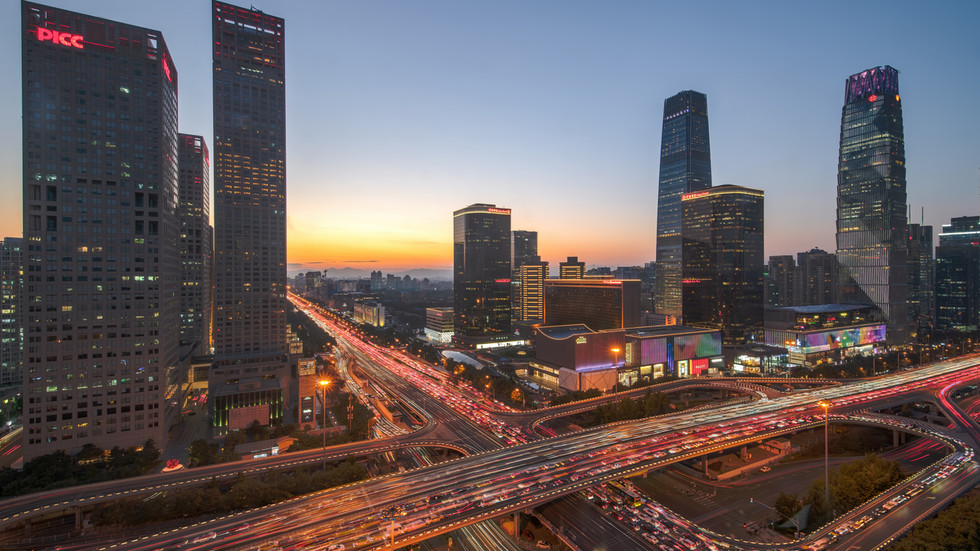
Politburo Standing Committee: Who are the men that rule China now? www.bbc.com
The Chinese Communist Party has finally unveiled the men who will rule China for the next five years.
The Politburo Standing Committee is China's equivalent of the presidential cabinet.
It is considered the elite of the elite within the party, and getting to the top often requires not only a stellar political track record, but also deft manoeuvring of internal rivalries.
It is not unusual to see big reshuffles of the Standing Committee after a term ends, and this time it is no different.
Effectively handpicked by President Xi Jinping, most of them are new to the team apart from Zhao Leji and Wang Huning. Most, if not all, are seen to be Xi loyalists.
Here are the men who, led by President Xi, make up the power centre of China.
Li Qiang
Age: 63
Current political post: Party secretary of Shanghai
Seen as Xi's most trusted junior colleague, Li worked in small counties in Zhejiang province. When Xi was party chief of Zhejiang, Li served as his chief of staff.
His team's handling of the Covid outbreak in Shanghai earlier this year was contentious and residents were critical of it. There was speculation on whether this could have affected his political future.
But with this appointment, it is clear his loyalty to Xi has placed him in good stead. The titles of the members in the Standing Committee will be confirmed next year, and many believe Li will become the next Premier, the second-in-command after Xi.
Zhao Leji
Age: 65
Current political post: Head of the Central Commission for Discipline Inspection
Zhao has been seen as a rising star in the Chinese leadership, and has close links to the Shaanxi province, much like Xi.
After entering the Qinghai provincial government, he swiftly rose up the ladder and became governor at the age of 42 - the youngest person to become a provincial governor.
As the head of the anti-corruption body, Zhao is responsible for maintaining party discipline and has reported a number of senior officers for accepting bribes throughout the years.
Wang Huning
Age: 67
Current political ranking: First secretary of the Communist Party's Secretariat
A former scholar and professor, Wang rose through the ranks after catching the eye of senior politicians. He was recommended to then-president Jiang Zemin and promoted to become Jiang's consultant.
As the party's political theorist, Wang is considered to be the brains behind many Communist Party concepts, including the ideologies for three leaders: the Three Represents of Jiang Zemin, the Scientific Outlook on Development of Hu Jintao, and Xi Jinping Thought. China's ambitious Belt and Road Initiative was also believed to be his idea.
He is said to get along well with all factions in the party.
Cai Qi
Age: 66
Current political ranking: Mayor of Beijing
A close ally of Xi, he has worked under the Chinese leader in the Fujian and Zhejiang provinces and has called for absolute loyalty to him.
Beijing's hosting of the Winter Olympics earlier this year, at the height of the pandemic, was seen within the party as a success and reflected well on him.
But he also attracted controversy when he launched a plan in 2017 to reduce the population of the capital, that ultimately forced out many low-income earners from the city.
Ding Xuexiang
Age: 60
Current political ranking: Director of the Office of the General Secretary and Office of the President
A trained engineer, Ding started his political career at a government-affiliated research centre in Shanghai.
Though he lacked experience as a provincial-level party secretary or governor - usually considered essential in the climb to power - he became Xi's secretary in 2007. Since 2014 he has been the head of the presidential office, effectively acting as Xi's chief-of-staff.
A strong advocate of Xi Jinping Thought, he is one of Xi's most trusted aides. He has accompanied the Chinese leader for many trips within China as well as abroad - observers say he has probably spent more time with Xi than any other official in recent years.
Li Xi
Age: 66
Current political ranking: Party secretary of Guangdong province
A Xi loyalist with close ties to the Chinese leader's family, Li is seen as a crisis-solver for handling a 2017 scandal in Liaoning province over falsified economic data.
He was the party leader in the politically significant city of Yanan, which Mao Zedong used as the party's headquarters during World War Two and where Xi spent seven years of hard labour.
In Guangdong, Li pushed for the development of the tech industry and economic reform. He also issued new trade policies and promoted regional integration in the area.
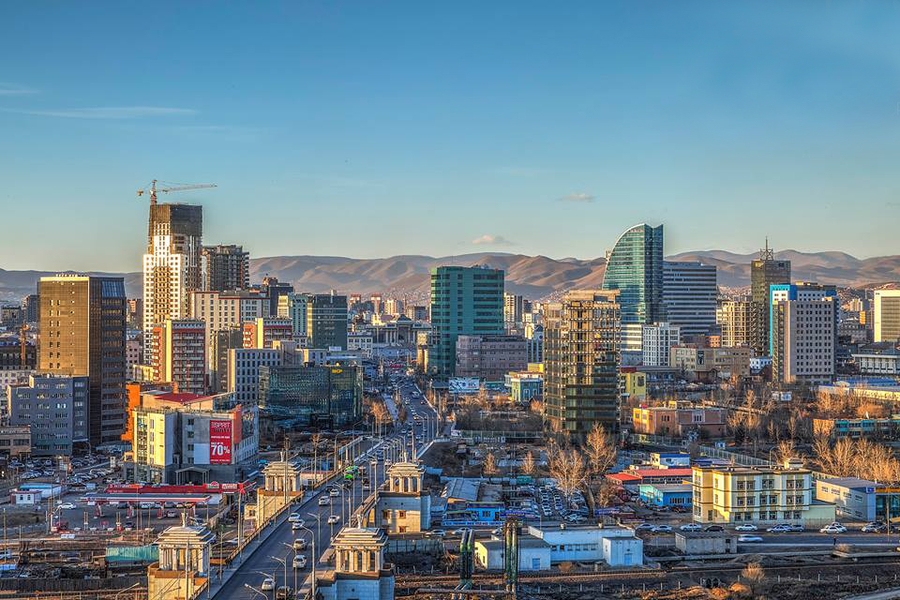
Digital Transformation in Mongolia: Insight From The Ministry of Digital Development www.thefintechtimes.com
Two years ago, the government of Mongolia set out a five-year plan to build a ‘digital nation’, harnessing data and technology to facilitate innovation, streamline public services and diversify the country’s mining-reliant economy.
The world’s most sparsely populated country, with more than three million people spread out across 1.6 million square kilometres, wants to deliver digital transformation up to 90 per cent by 2024.
It established the Mongolian Ministry of Digital Development and Communications, appointing Bolor-Erdene Battsengel as Vice Minister. The ICT leader, who was also recently named a next-generation leader by TIME Magazine, is the country’s youngest cabinet member and a face of women empowerment.
The Fintech Times chatted to Battsengel to learn more about the mission to turn Mongolia into an economic and tech hub as well as her coding programme for girls from disadvantaged regions and remote locations.
What work is being done to accelerate digital transformation in Mongolia?
Now is an extremely important time for digital transformation in Mongolia. We are looking at a tech boom here. For the first time in Mongolian history, the government announced the ICT sector as one of the nation’s economic priorities, and approved the digital nation policy.
Following this announcement, the necessary legal framework was created to accelerate digital transformation, and a set of digital development laws were approved. These include the laws on Personal Information Protection, Public Information, Cybersecurity, Digital Signatures, and Virtual Asset Service Providers, all of which were approved in 2020 and implemented in May, 2022.
I GENUINELY BELIEVE THAT MONGOLIA IS BECOMING ASIA’S NEXT HIDDEN GEM, AS THE REGULATORY ENVIRONMENT IS FRIENDLY FOR INNOVATION
Startups and private sector innovation have accelerated in Mongolia, while digital governance has taken new steps against red-tape bureaucracy and corruption. We have launched the E-Mongolia platform, which provides government services online. As a sparsely-populated country with a nomadic culture, it was crucial to introduce a government service platform so that our citizens can get their government services regardless of their locations.
Currently, we have digitised about 2,000 government services including registering a company, getting a license and ordering a new passport etc. Over 75 per cent of the adult population is now using E-Mongolia on a daily basis.
Mongolia
What emerging technologies are having a noticeable impact in Mongolia?
One of the catalysts for the rapid development of the fintech industry in Mongolia is artificial intelligence. Artificial intelligence is being used to credit scoring and provide short-term consumer loans.
The Ministry of Education is using blockchain technology to register all sorts of certifications and university diplomas. Also, land ownership has been a big issue. The ownership registration is also based on blockchain technology. Currently, we have introduced AI for E-Mongolia to suggest government services before citizens reach out to government platforms depending on their needs.
Why is Mongolia an attractive opportunity for UK companies?
I genuinely believe that Mongolia is becoming Asia’s next hidden gem, as the regulatory environment is friendly for innovation. Also, we are encouraging tech companies to come and create this hub with us. In terms of tax environment, it is friendly compared to other countries. Startups are interested in Mongolia for the geographical locations as they want to operate in either East Asia or Central Asia.
What can UK companies bring to Mongolia and what lessons do you think can be learned/shared between the two countries’ fintech ecosystems?
We hope that UK companies can bring a diverse startup culture to Mongolia as well as innovation. In Mongolia, the personnel of the banking and fintech sector have relative potential compared to other sectors. Therefore, it is possible to exchange business, working methods and technological know-how through personnel exchange.
Could you share further insight into your department’s upcoming plans and the mission to turn Mongolia into an economic and tech hub?
The Ministry of Digital Development and Communications is paying great attention to nurturing and developing IT startups, in addition to the national digital transformation. We are working to create a favorable legal environment and ecosystem and create a technology free zone.
How can we attract more women into tech and leadership roles?
We have talked about gender issues in the tech sector so much over the past 10 years. Unfortunately, we have not seen much improvement, because it really requires long-term institutional change: creating role models in society, supporting capable and potential women as leaders, and providing opportunities for teenage girls to participate in coding and STEM programmes from an early age.
I have my own initiative called Girls Code which brings girls, most of them in high school, from remote areas and disadvantaged families and organises three months of boot camp. So far we have 80 graduates, of which 11 are now accepted and enrolled to Ivy League universities in the US and several more studying in Japan and China for ICT degrees.
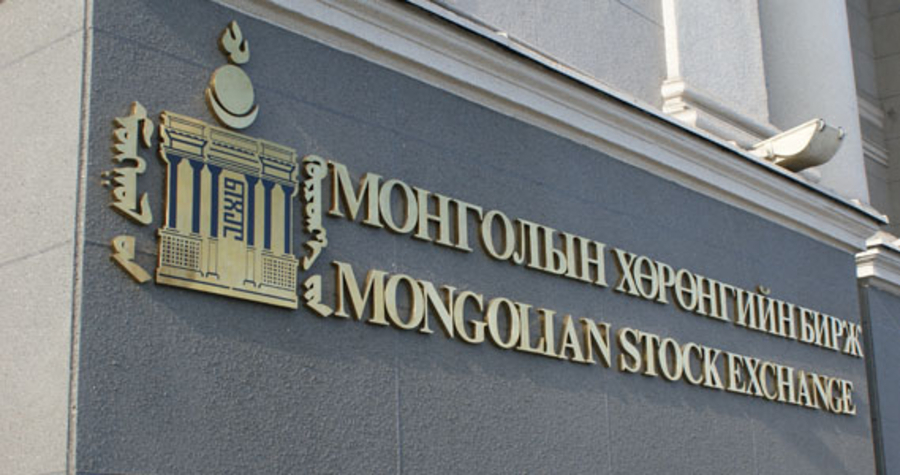
Bank IPOs leading the charge for Mongolia’s maturing stock exchange www.intellinews.com
Banks aren’t usually the first thing that comes to mind when investors want to plough money into the Mongolian economy; mostly it’s mining. But lately the banking sector has become the focus of attention for this country’s capital markets and IPO-hungry investors.
Earlier this month, State Bank, one of Mongolia’s five systemically important banks (SIBs), listed 5% of its shares, raising MNT25.4bn ($7.9mn). That listing was the first of what is expected to be several IPOs over the next year and a half for this country’s biggest banks.
Activity on the Mongolian Stock Exchange, which has a market cap of $1.6bn, has been accelerating with help from a robust string of bond sales and public offerings. The mineral-rich nation has long sought to diversify its assets beyond the mining space – the stock exchange is seen as a vehicle to pump investment into other sectors, including food production, banks, and textiles.
The State Bank IPO generated considerable interest and was three-times oversubscribed, Altai Khangai, chief executive officer for the stock exchange, told bne IntelliNews. State Bank’s shares have since surged 76% on the secondary market.
But State Bank was just the first of several major banks to list on the MSE this year. Mongolia’s four other SIBs – XacBank LLC, Khan Bank, Trade & Development Bank and Golomt Bank – are all expected to list on the MSE by the end of next year. Two of these banks are expected to list shares on the exchange this year, followed by two in 2023.
The flurry of activity in bank IPOs is driven by Mongolia’s updated banking code, adopted last year. The code requires SIBs to be listed, and to cap a bank’s shareholding rights at 20% by the end of 2023. Fitch Ratings reports on its Mongolian Banks Dashboard the new requirements will improve transparency and strengthen the banking system’s governance.
The code amendment that is pushing Mongolia’s banks to go public consists of two phases. Phase one requires the systemic banks to list 20% by June 30, 2023 and phase two requires these banks to list 80% of shares by Dec. 31, 2023.
“I see that as a booster for the market,” said Altai, now six years into his second stint as CEO of the exchange.
The new listings could help boost a market that has slumped 18% this year. That downward pressure follows global trends, with the market sliding for most of the year amid high oil prices, war in Ukraine, and global economic headwinds. Mongolia’s currency is under pressure too and has likewise declined 18% year to date.
The downturn in stocks might also be profit taking after last year’s phenomenal run, when the MSE Top-20 Index soared 133%, easily the best performance of any of the world’s markets.
The MSE’s trading turnover was lifted last year with help from coal miner Erdenes Tavan Tolgoi, which issued $245mn in bonds on the exchange. The ETT bond equalled roughly half of the market’s trading volume last year.
The increased activity hasn’t gone unnoticed. Earlier this month the FTSE Russell, a subsidiary of the London Stock Exchange Group, said Mongolia meets all of the FTSE Quality of Markets criteria for market classification. Effective September 2023, the exchange will be assigned Frontier market status.
“It’s a big thing,” said Altai, bluntly describing the announcement.
The exchange’s reputation has been boosted by a campaign to delist a number of inactive companies – 182 companies are currently listed compared to 332 companies a decade ago. Its products have also diversified. Investors can choose from ten corporate bonds and a handful of asset-backed securities.
There’s even a dual-listed company – Erdene Resource Development Corp., a Nova Scotia-based junior miner, that trades on both the Mongolian and Toronto stock exchanges. Erdene has raised $6mn through the MSE and has amassed around 6,000 Mongolian shareholders.
The Erdene cross-listing could pave the way for others to also list in Ulaanbaatar, where foreign capital is badly needed to counter the country’s sluggish economy. The Asian Development Bank (ADB) is forecasting just 1.7% growth this year, down from an April projection of 2.3%.
“We need to make this a very liquid market,” said Altai, whose past roles include a stint as advisor to a former Mongolian prime minister. “We need the presence of international, institutional money. We need this institutional investor base in the country.”
The onslaught of bank IPOs coming at a time of economic uncertainty is no cause for concern, Mongolia-watchers say, and should be a net positive for the banking sector.
Edward Faber, an economist with the ADB in Mongolia, said the IPOs will not only reinforce the capital position of banks but will also diversify the shareholder base. That asset quality reviews will precede the IPOs is also a good step that instils confidence, he said.
The IPOs “should also make banks more accountable and require them to disclose more information publicly, and result in better corporate governance more generally,” said Faber. “Greater shareholder diversification will be a positive.”
By Michael Kohn

Detection dogs started detecting illegal trade of wild animals www.montsame.mn
More than ten organizations, including the Integrated Training Center for the National Police Agency and Mongolian Armed Forces and the Search Dog Training Center of the Mongolian Customs General Administration, jointly organized the first conference of the detection dog sector on Wednesday, 19 Oct 2022.
Along with these two centers, the representatives of the General Authority for Border Protection, the State Special Protection Agency, the National Rescue Team of the National Emergency Management Agency, the General Intelligence Agency, the National Civil Aviation Center Security Service, the Ulaanbaatar Railway, military security, the Association of Mongolian Search Dog Owners, the “Institute for Occupational Standards and Human Development” NGO participated in the conference.
This conference aims to determine the duties and responsibilities and develop standards for government organizations with sniffer dogs. Funded by the conference’s main organizer, the Zoological Society of London in Mongolia organized workshops for organizations using detection dogs to patrol the entrances to the city and specially protected areas around the city to discover hidden items and products.
The organization also provided techniques and equipment worth MNT 55 million to the Search Dog Training Center of the Mongolian Customs General Administration, MNT 53 million to the Integrated Training Center for the National Police Agency and Mongolian Armed Forces, MNT 17 million to the National Rescue Team, and MNT 21 million to the Association of Mongolian Search Dog Owners. Moreover, it invited professional trainers from the United Kingdom and organized a training course, which was greatly appreciated by the dog handlers.
Thus, the Zoological Society of London in Mongolia has been supporting the strengthening of the detection dog sector in Mongolia, using search dogs to reduce the illegal hunting and trade of wild animals and for environmental protection.

BYD Yuan Plus Electric SUV Launched in Mongolia www.montsame.mn
On October 16, Chinese new energy automobile giant BYD officially unveiled the BYD ATTO 3 in Mongolia, through their local dealership partner, MSM Group.
BYD first entered the Mongolian passenger car market in 2020, selling many pure EVs such as the T3, Tang, Han, and Dolphin Models. BYD currently has an 87% market share of Mongolia`s new energy vehicles and a 58% market share of the country`s pure electric vehicles in it, according to the company.
Mongolian Energy Minister N.Tavinbekh said, “It is necessary to take measures this year to increase the popularity of electric vehicles as a way to combat climate change and reduce greenhouse gas emissions".
“It will work with Mongolia to promote green innovation for the sustainable development of human society and help cool the planet by 1°C,” said BYD.
BYD's new energy vehicles have now covered more than 70 countries and regions and more than 400 cities around the world, serving more than 2.6 million car owners. In September, BYD sold 7,736 new energy passenger cars overseas, exporting cars to Japan, Germany, Sweden, and other new countries and regions.
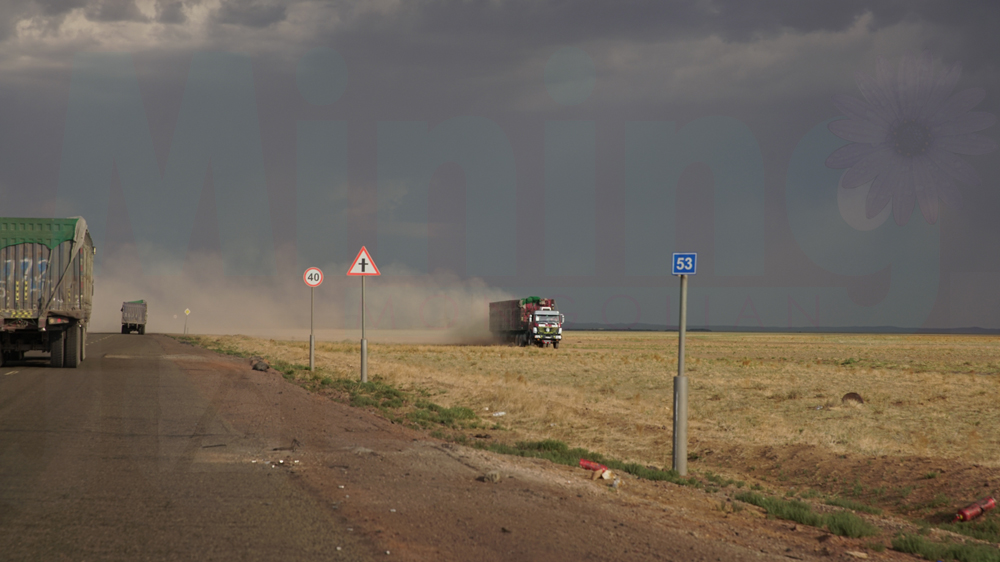
Meet the Woman Who Lived Out of Her Truck On Mongolia's Coal Highway www.jalopnik.com
The Gobi Desert is home to Mongolia’s largest coal basins, which are critical to the country’s industrialization. Impossibly long and desolate stretches of road connect coal mines in the Gobi to China, and thousands of truckers travel along Mongolia’s coal highway ferrying precious carbon loads. One of these truckers is a woman named Maikhuu Sengee, otherwise known as the “Lady of the Gobi.”
Go watch this documentary on Aeon about her life on the road as one of the only women — if not the only one — who’s spent years away from family to drive a loaded truck across the desert. Set aside about 25 minutes to follow Maikhuu through the lens of filmmamer Khoroldorj Choijoovanchig. I swear it’s worth it:
The documentary, titled The Lady of the Gobi after Maikhuu herself, details how Mongolia has undergone massive migrations as it went from an agrarian society to an industrialized one. The country’s resources, including coal, have been exported to its southern neighbor China for decades.
This flow of goods and wealth pulled the people of Mongolia toward urban centers and the desert alike. Maikhuu’s family stayed behind in the capital of Mongolia, Ulaanbaatar, while she went south to the Gobi Desert, then further still to the Chinese border. But the global pandemic made life almost impossible for many truckers, who abandoned their big rigs in the desert and moved on.
But Maikhuu stayed; the trucker lived out of her cab for days and weeks at a time, between stretches of living in quarantine camps as she made her way to and from the border of Mongolia and China. She’d been a hairdresser before becoming a driver, and the documentary follows Maikhuu even as she helps fellow truckers out with a haircut now and then.
The truck drivers eat, sleep, shower and wash clothes at makeshift truck stops like nomads who shepherd machines through the desert. Maikhuu’s journey sees her oscillate between the joy of driving through Mongolia’s coal highway — a road that’s brought life to many, and has been her own life for the last seven years — and the sadness of being far from home on a road that never ends.
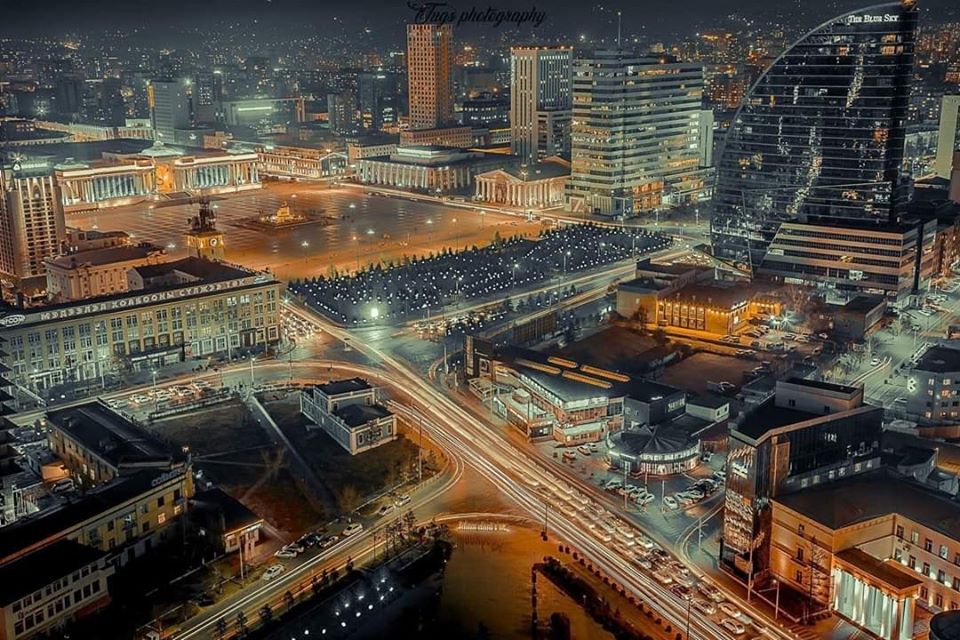
Mongolia dissolves General Agency for Specialized Inspection www.news.mn
Mongolian Government decided to dissolve General Agency for Specialized Inspection. Therefore, its functions will be transferred to the ministries. Therefore, some 300 jobs were cut. The Specialized Inspection Agency has 2200 inspectors in 21 provinces and capital city of Ulaanbaatar.
The General Agency for Specialized Inspection was established after uniting all 11 implementing administrative inspection agencies within ministries, by the 58th Resolution of the State Great Hural Parliament of Mongolia (passed in 2002). The Agency was responsible for overseeing the operations of all businesses across the country. By law, planned inspections are done on the basis of risk assessment, unplanned inspections on the basis of complaints and requests; or by the decision of the competent institution.
- «
- 1
- 2
- 3
- 4
- 5
- 6
- 7
- 8
- 9
- 10
- 11
- 12
- 13
- 14
- 15
- 16
- 17
- 18
- 19
- 20
- 21
- 22
- 23
- 24
- 25
- 26
- 27
- 28
- 29
- 30
- 31
- 32
- 33
- 34
- 35
- 36
- 37
- 38
- 39
- 40
- 41
- 42
- 43
- 44
- 45
- 46
- 47
- 48
- 49
- 50
- 51
- 52
- 53
- 54
- 55
- 56
- 57
- 58
- 59
- 60
- 61
- 62
- 63
- 64
- 65
- 66
- 67
- 68
- 69
- 70
- 71
- 72
- 73
- 74
- 75
- 76
- 77
- 78
- 79
- 80
- 81
- 82
- 83
- 84
- 85
- 86
- 87
- 88
- 89
- 90
- 91
- 92
- 93
- 94
- 95
- 96
- 97
- 98
- 99
- 100
- 101
- 102
- 103
- 104
- 105
- 106
- 107
- 108
- 109
- 110
- 111
- 112
- 113
- 114
- 115
- 116
- 117
- 118
- 119
- 120
- 121
- 122
- 123
- 124
- 125
- 126
- 127
- 128
- 129
- 130
- 131
- 132
- 133
- 134
- 135
- 136
- 137
- 138
- 139
- 140
- 141
- 142
- 143
- 144
- 145
- 146
- 147
- 148
- 149
- 150
- 151
- 152
- 153
- 154
- 155
- 156
- 157
- 158
- 159
- 160
- 161
- 162
- 163
- 164
- 165
- 166
- 167
- 168
- 169
- 170
- 171
- 172
- 173
- 174
- 175
- 176
- 177
- 178
- 179
- 180
- 181
- 182
- 183
- 184
- 185
- 186
- 187
- 188
- 189
- 190
- 191
- 192
- 193
- 194
- 195
- 196
- 197
- 198
- 199
- 200
- 201
- 202
- 203
- 204
- 205
- 206
- 207
- 208
- 209
- 210
- 211
- 212
- 213
- 214
- 215
- 216
- 217
- 218
- 219
- 220
- 221
- 222
- 223
- 224
- 225
- 226
- 227
- 228
- 229
- 230
- 231
- 232
- 233
- 234
- 235
- 236
- 237
- 238
- 239
- 240
- 241
- 242
- 243
- 244
- 245
- 246
- 247
- 248
- 249
- 250
- 251
- 252
- 253
- 254
- 255
- 256
- 257
- 258
- 259
- 260
- 261
- 262
- 263
- 264
- 265
- 266
- 267
- 268
- 269
- 270
- 271
- 272
- 273
- 274
- 275
- 276
- 277
- 278
- 279
- 280
- 281
- 282
- 283
- 284
- 285
- 286
- 287
- 288
- 289
- 290
- 291
- 292
- 293
- 294
- 295
- 296
- 297
- 298
- 299
- 300
- 301
- 302
- 303
- 304
- 305
- 306
- 307
- 308
- 309
- 310
- 311
- 312
- 313
- 314
- 315
- 316
- 317
- 318
- 319
- 320
- 321
- 322
- 323
- 324
- 325
- 326
- 327
- 328
- 329
- 330
- 331
- 332
- 333
- 334
- 335
- 336
- 337
- 338
- 339
- 340
- 341
- 342
- 343
- 344
- 345
- 346
- 347
- 348
- 349
- 350
- 351
- 352
- 353
- 354
- 355
- 356
- 357
- 358
- 359
- 360
- 361
- 362
- 363
- 364
- 365
- 366
- 367
- 368
- 369
- 370
- 371
- 372
- 373
- 374
- 375
- 376
- 377
- 378
- 379
- 380
- 381
- 382
- 383
- 384
- 385
- 386
- 387
- 388
- 389
- 390
- 391
- 392
- 393
- 394
- 395
- 396
- 397
- 398
- 399
- 400
- 401
- 402
- 403
- 404
- 405
- 406
- 407
- 408
- 409
- 410
- 411
- 412
- 413
- 414
- 415
- 416
- 417
- 418
- 419
- 420
- 421
- 422
- 423
- 424
- 425
- 426
- 427
- 428
- 429
- 430
- 431
- 432
- 433
- 434
- 435
- 436
- 437
- 438
- 439
- 440
- 441
- 442
- 443
- 444
- 445
- 446
- 447
- 448
- 449
- 450
- 451
- 452
- 453
- 454
- 455
- 456
- 457
- 458
- 459
- 460
- 461
- 462
- 463
- 464
- 465
- 466
- 467
- 468
- 469
- 470
- 471
- 472
- 473
- 474
- 475
- 476
- 477
- 478
- 479
- 480
- 481
- 482
- 483
- 484
- 485
- 486
- 487
- 488
- 489
- 490
- 491
- 492
- 493
- 494
- 495
- 496
- 497
- 498
- 499
- 500
- 501
- 502
- 503
- 504
- 505
- 506
- 507
- 508
- 509
- 510
- 511
- 512
- 513
- 514
- 515
- 516
- 517
- 518
- 519
- 520
- 521
- 522
- 523
- 524
- 525
- 526
- 527
- 528
- 529
- 530
- 531
- 532
- 533
- 534
- 535
- 536
- 537
- 538
- 539
- 540
- 541
- 542
- 543
- 544
- 545
- 546
- 547
- 548
- 549
- 550
- 551
- 552
- 553
- 554
- 555
- 556
- 557
- 558
- 559
- 560
- 561
- 562
- 563
- 564
- 565
- 566
- 567
- 568
- 569
- 570
- 571
- 572
- 573
- 574
- 575
- 576
- 577
- 578
- 579
- 580
- 581
- 582
- 583
- 584
- 585
- 586
- 587
- 588
- 589
- 590
- 591
- 592
- 593
- 594
- 595
- 596
- 597
- 598
- 599
- 600
- 601
- 602
- 603
- 604
- 605
- 606
- 607
- 608
- 609
- 610
- 611
- 612
- 613
- 614
- 615
- 616
- 617
- 618
- 619
- 620
- 621
- 622
- 623
- 624
- 625
- 626
- 627
- 628
- 629
- 630
- 631
- 632
- 633
- 634
- 635
- 636
- 637
- 638
- 639
- 640
- 641
- 642
- 643
- 644
- 645
- 646
- 647
- 648
- 649
- 650
- 651
- 652
- 653
- 654
- 655
- 656
- 657
- 658
- 659
- 660
- 661
- 662
- 663
- 664
- 665
- 666
- 667
- 668
- 669
- 670
- 671
- 672
- 673
- 674
- 675
- 676
- 677
- 678
- 679
- 680
- 681
- 682
- 683
- 684
- 685
- 686
- 687
- 688
- 689
- 690
- 691
- 692
- 693
- 694
- 695
- 696
- 697
- 698
- 699
- 700
- 701
- 702
- 703
- 704
- 705
- 706
- 707
- 708
- 709
- 710
- 711
- 712
- 713
- 714
- 715
- 716
- 717
- 718
- 719
- 720
- 721
- 722
- 723
- 724
- 725
- 726
- 727
- 728
- 729
- 730
- 731
- 732
- 733
- 734
- 735
- 736
- 737
- 738
- 739
- 740
- 741
- 742
- 743
- 744
- 745
- 746
- 747
- 748
- 749
- 750
- 751
- 752
- 753
- 754
- 755
- 756
- 757
- 758
- 759
- 760
- 761
- 762
- 763
- 764
- 765
- 766
- 767
- 768
- 769
- 770
- 771
- 772
- 773
- 774
- 775
- 776
- 777
- 778
- 779
- 780
- 781
- 782
- 783
- 784
- 785
- 786
- 787
- 788
- 789
- 790
- 791
- 792
- 793
- 794
- 795
- 796
- 797
- 798
- 799
- 800
- 801
- 802
- 803
- 804
- 805
- 806
- 807
- 808
- 809
- 810
- 811
- 812
- 813
- 814
- 815
- 816
- 817
- 818
- 819
- 820
- 821
- 822
- 823
- 824
- 825
- 826
- 827
- 828
- 829
- 830
- 831
- 832
- 833
- 834
- 835
- 836
- 837
- 838
- 839
- 840
- 841
- 842
- 843
- 844
- 845
- 846
- 847
- 848
- 849
- 850
- 851
- 852
- 853
- 854
- 855
- 856
- 857
- 858
- 859
- 860
- 861
- 862
- 863
- 864
- 865
- 866
- 867
- 868
- 869
- 870
- 871
- 872
- 873
- 874
- 875
- 876
- 877
- 878
- 879
- 880
- 881
- 882
- 883
- 884
- 885
- 886
- 887
- 888
- 889
- 890
- 891
- 892
- 893
- 894
- 895
- 896
- 897
- 898
- 899
- 900
- 901
- 902
- 903
- 904
- 905
- 906
- 907
- 908
- 909
- 910
- 911
- 912
- 913
- 914
- 915
- 916
- 917
- 918
- 919
- 920
- 921
- 922
- 923
- 924
- 925
- 926
- 927
- 928
- 929
- 930
- 931
- 932
- 933
- 934
- 935
- 936
- 937
- 938
- 939
- 940
- 941
- 942
- 943
- 944
- 945
- 946
- 947
- 948
- 949
- 950
- 951
- 952
- 953
- 954
- 955
- 956
- 957
- 958
- 959
- 960
- 961
- 962
- 963
- 964
- 965
- 966
- 967
- 968
- 969
- 970
- 971
- 972
- 973
- 974
- 975
- 976
- 977
- 978
- 979
- 980
- 981
- 982
- 983
- 984
- 985
- 986
- 987
- 988
- 989
- 990
- 991
- 992
- 993
- 994
- 995
- 996
- 997
- 998
- 999
- 1000
- 1001
- 1002
- 1003
- 1004
- 1005
- 1006
- 1007
- 1008
- 1009
- 1010
- 1011
- 1012
- 1013
- 1014
- 1015
- 1016
- 1017
- 1018
- 1019
- 1020
- 1021
- 1022
- 1023
- 1024
- 1025
- 1026
- 1027
- 1028
- 1029
- 1030
- 1031
- 1032
- 1033
- 1034
- 1035
- 1036
- 1037
- 1038
- 1039
- 1040
- 1041
- 1042
- 1043
- 1044
- 1045
- 1046
- 1047
- 1048
- 1049
- 1050
- 1051
- 1052
- 1053
- 1054
- 1055
- 1056
- 1057
- 1058
- 1059
- 1060
- 1061
- 1062
- 1063
- 1064
- 1065
- 1066
- 1067
- 1068
- 1069
- 1070
- 1071
- 1072
- 1073
- 1074
- 1075
- 1076
- 1077
- 1078
- 1079
- 1080
- 1081
- 1082
- 1083
- 1084
- 1085
- 1086
- 1087
- 1088
- 1089
- 1090
- 1091
- 1092
- 1093
- 1094
- 1095
- 1096
- 1097
- 1098
- 1099
- 1100
- 1101
- 1102
- 1103
- 1104
- 1105
- 1106
- 1107
- 1108
- 1109
- 1110
- 1111
- 1112
- 1113
- 1114
- 1115
- 1116
- 1117
- 1118
- 1119
- 1120
- 1121
- 1122
- 1123
- 1124
- 1125
- 1126
- 1127
- 1128
- 1129
- 1130
- 1131
- 1132
- 1133
- 1134
- 1135
- 1136
- 1137
- 1138
- 1139
- 1140
- 1141
- 1142
- 1143
- 1144
- 1145
- 1146
- 1147
- 1148
- 1149
- 1150
- 1151
- 1152
- 1153
- 1154
- 1155
- 1156
- 1157
- 1158
- 1159
- 1160
- 1161
- 1162
- 1163
- 1164
- 1165
- 1166
- 1167
- 1168
- 1169
- 1170
- 1171
- 1172
- 1173
- 1174
- 1175
- 1176
- 1177
- 1178
- 1179
- 1180
- 1181
- 1182
- 1183
- 1184
- 1185
- 1186
- 1187
- 1188
- 1189
- 1190
- 1191
- 1192
- 1193
- 1194
- 1195
- 1196
- 1197
- 1198
- 1199
- 1200
- 1201
- 1202
- 1203
- 1204
- 1205
- 1206
- 1207
- 1208
- 1209
- 1210
- 1211
- 1212
- 1213
- 1214
- 1215
- 1216
- 1217
- 1218
- 1219
- 1220
- 1221
- 1222
- 1223
- 1224
- 1225
- 1226
- 1227
- 1228
- 1229
- 1230
- 1231
- 1232
- 1233
- 1234
- 1235
- 1236
- 1237
- 1238
- 1239
- 1240
- 1241
- 1242
- 1243
- 1244
- 1245
- 1246
- 1247
- 1248
- 1249
- 1250
- 1251
- 1252
- 1253
- 1254
- 1255
- 1256
- 1257
- 1258
- 1259
- 1260
- 1261
- 1262
- 1263
- 1264
- 1265
- 1266
- 1267
- 1268
- 1269
- 1270
- 1271
- 1272
- 1273
- 1274
- 1275
- 1276
- 1277
- 1278
- 1279
- 1280
- 1281
- 1282
- 1283
- 1284
- 1285
- 1286
- 1287
- 1288
- 1289
- 1290
- 1291
- 1292
- 1293
- 1294
- 1295
- 1296
- 1297
- 1298
- 1299
- 1300
- 1301
- 1302
- 1303
- 1304
- 1305
- 1306
- 1307
- 1308
- 1309
- 1310
- 1311
- 1312
- 1313
- 1314
- 1315
- 1316
- 1317
- 1318
- 1319
- 1320
- 1321
- 1322
- 1323
- 1324
- 1325
- 1326
- 1327
- 1328
- 1329
- 1330
- 1331
- 1332
- 1333
- 1334
- 1335
- 1336
- 1337
- 1338
- 1339
- 1340
- 1341
- 1342
- 1343
- 1344
- 1345
- 1346
- 1347
- 1348
- 1349
- 1350
- 1351
- 1352
- 1353
- 1354
- 1355
- 1356
- 1357
- 1358
- 1359
- 1360
- 1361
- 1362
- 1363
- 1364
- 1365
- 1366
- 1367
- 1368
- 1369
- 1370
- 1371
- 1372
- 1373
- 1374
- 1375
- 1376
- 1377
- 1378
- 1379
- 1380
- 1381
- 1382
- 1383
- 1384
- 1385
- 1386
- 1387
- 1388
- 1389
- 1390
- 1391
- 1392
- 1393
- 1394
- 1395
- 1396
- 1397
- 1398
- 1399
- 1400
- 1401
- 1402
- 1403
- 1404
- 1405
- 1406
- 1407
- 1408
- 1409
- 1410
- 1411
- 1412
- 1413
- 1414
- 1415
- 1416
- 1417
- 1418
- 1419
- 1420
- 1421
- 1422
- 1423
- 1424
- 1425
- 1426
- 1427
- 1428
- 1429
- 1430
- 1431
- 1432
- 1433
- 1434
- 1435
- 1436
- 1437
- 1438
- 1439
- 1440
- 1441
- 1442
- 1443
- 1444
- 1445
- 1446
- 1447
- 1448
- 1449
- 1450
- 1451
- 1452
- 1453
- 1454
- 1455
- 1456
- 1457
- 1458
- 1459
- 1460
- 1461
- 1462
- 1463
- 1464
- 1465
- 1466
- 1467
- 1468
- 1469
- 1470
- 1471
- 1472
- 1473
- 1474
- 1475
- 1476
- 1477
- 1478
- 1479
- 1480
- 1481
- 1482
- 1483
- 1484
- 1485
- 1486
- 1487
- 1488
- 1489
- 1490
- 1491
- 1492
- 1493
- 1494
- 1495
- 1496
- 1497
- 1498
- 1499
- 1500
- 1501
- 1502
- 1503
- 1504
- 1505
- 1506
- 1507
- 1508
- 1509
- 1510
- 1511
- 1512
- 1513
- 1514
- 1515
- 1516
- 1517
- 1518
- 1519
- 1520
- 1521
- 1522
- 1523
- 1524
- 1525
- 1526
- 1527
- 1528
- 1529
- 1530
- 1531
- 1532
- 1533
- 1534
- 1535
- 1536
- 1537
- 1538
- 1539
- 1540
- 1541
- 1542
- 1543
- 1544
- 1545
- 1546
- 1547
- 1548
- 1549
- 1550
- 1551
- 1552
- 1553
- 1554
- 1555
- 1556
- 1557
- 1558
- 1559
- 1560
- 1561
- 1562
- 1563
- 1564
- 1565
- 1566
- 1567
- 1568
- 1569
- 1570
- 1571
- 1572
- 1573
- 1574
- 1575
- 1576
- 1577
- 1578
- 1579
- 1580
- 1581
- 1582
- 1583
- 1584
- 1585
- 1586
- 1587
- 1588
- 1589
- 1590
- 1591
- 1592
- 1593
- 1594
- 1595
- 1596
- 1597
- 1598
- 1599
- 1600
- 1601
- 1602
- 1603
- 1604
- 1605
- 1606
- 1607
- 1608
- 1609
- 1610
- 1611
- 1612
- 1613
- 1614
- 1615
- 1616
- 1617
- 1618
- 1619
- 1620
- 1621
- 1622
- 1623
- 1624
- 1625
- 1626
- 1627
- 1628
- 1629
- 1630
- 1631
- 1632
- 1633
- 1634
- 1635
- 1636
- 1637
- 1638
- 1639
- 1640
- 1641
- 1642
- 1643
- 1644
- 1645
- 1646
- 1647
- 1648
- 1649
- 1650
- 1651
- 1652
- 1653
- 1654
- 1655
- 1656
- 1657
- 1658
- 1659
- 1660
- 1661
- 1662
- 1663
- 1664
- 1665
- 1666
- 1667
- 1668
- 1669
- 1670
- 1671
- 1672
- 1673
- 1674
- 1675
- 1676
- 1677
- 1678
- 1679
- 1680
- 1681
- 1682
- 1683
- 1684
- 1685
- 1686
- 1687
- 1688
- 1689
- 1690
- 1691
- 1692
- 1693
- 1694
- 1695
- 1696
- 1697
- 1698
- 1699
- 1700
- 1701
- 1702
- 1703
- 1704
- 1705
- 1706
- 1707
- 1708
- 1709
- 1710
- 1711
- 1712
- 1713
- 1714
- »






